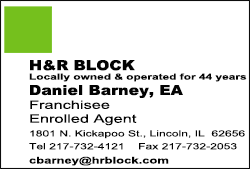|
 Reviving a 12-year-old lawsuit, U.S. District Judge Shira Scheindlin
in Manhattan accepted an argument from a group of plaintiffs that
corporations may be held liable under a 1789 law, the Alien Tort
Statute (ATS), that lets non-U.S. citizens pursue some cases in U.S.
courts over alleged violations of international law. Reviving a 12-year-old lawsuit, U.S. District Judge Shira Scheindlin
in Manhattan accepted an argument from a group of plaintiffs that
corporations may be held liable under a 1789 law, the Alien Tort
Statute (ATS), that lets non-U.S. citizens pursue some cases in U.S.
courts over alleged violations of international law.
"No principle of domestic or international law supports the
conclusion that the norms enforceable through the ATS ... apply only
to natural persons and not to corporations," Scheindlin wrote.
Her decision came in a case that the 2nd U.S. Circuit Court of
Appeals, also in Manhattan, in August had said should be dismissed.
"Obviously we're thrilled," said Diane Sammons, a partner at Nagel
Rice law firm in Roseland, New Jersey, representing some plaintiffs.
"Judge Scheindlin is not taking the word of the defendants that
corporations are not liable for human rights abuses under the ATS."
Sammons said she plans to file an amended complaint.

Jonathan Hacker, an O'Melveny & Myers partner who represents Ford,
did not respond immediately to requests for comment. Keith Hummel, a
partner at Cravath, Swaine & Moore who represents IBM, did not
respond immediately to similar requests.
The plaintiffs contended that by having made military vehicles and
computers for South African security forces, several companies
during the 1970s, 1980s and early 1990s had aided and abetted South
Africa's former apartheid government in perpetrating abuses, such as
killings and torture.
The litigation seeks class action status, with potential damages in
the billions of dollars.
TOUCHING AND CONCERNING U.S. TERRITORY
Last April, the U.S. Supreme Court limited the sweep of the Alien
Tort Statute, in the case Kiobel et al v. Royal Dutch Petroleum Co
et al.
In a decision by Chief Justice John Roberts, the court held that the
1789 law was presumed to cover only violations of international law
occurring in the United States, and that violations elsewhere must
"touch and concern" U.S. territory "with sufficient force to
displace the presumption."
[to top of second column] |

Four months later, Circuit Judge Jose Cabranes wrote for the 2nd
Circuit that these findings meant the case against Ford and IBM
should be dismissed, having "plainly bar<red> common-law suits, like
this one, alleging violations of customary international law based
solely on conduct occurring abroad."
The plaintiffs, however, said Cabranes' ruling was based on
arguments made before the Supreme Court's decision in the Kiobel
case, and sought a chance to meet the new, tighter standard set by
that court.
Thursday's decision provides that chance, and Scheindlin set a May
15 deadline to file a new complaint against Ford and IBM, whose full
name is International Business Machines Corp.
Germany's Daimler AG <DAIGn.DE> and Rheinmetall AG <RHMG.DE>
had also been defendants, but Scheindlin agreed in December that the
Kiobel decision barred claims against them.
General Motors Corp had also been among the defendants, but Sammons
said claims against it were discharged during that automaker's 2009
bankruptcy.
Apartheid ended in 1994 when South Africa held its first all-race
elections, bringing Nelson Mandela and the African National Congress
to power.
The case is In re: South African Apartheid Litigation, U.S. District
Court, Southern District of New York, No. 02-md-01499.
(Reporting by Jonathan Stempel in New York;
editing by Peter
Galloway)
[© 2014 Thomson Reuters. All rights
reserved.] Copyright 2014 Reuters. All rights reserved. This material may not be published,
broadcast, rewritten or redistributed.
 |